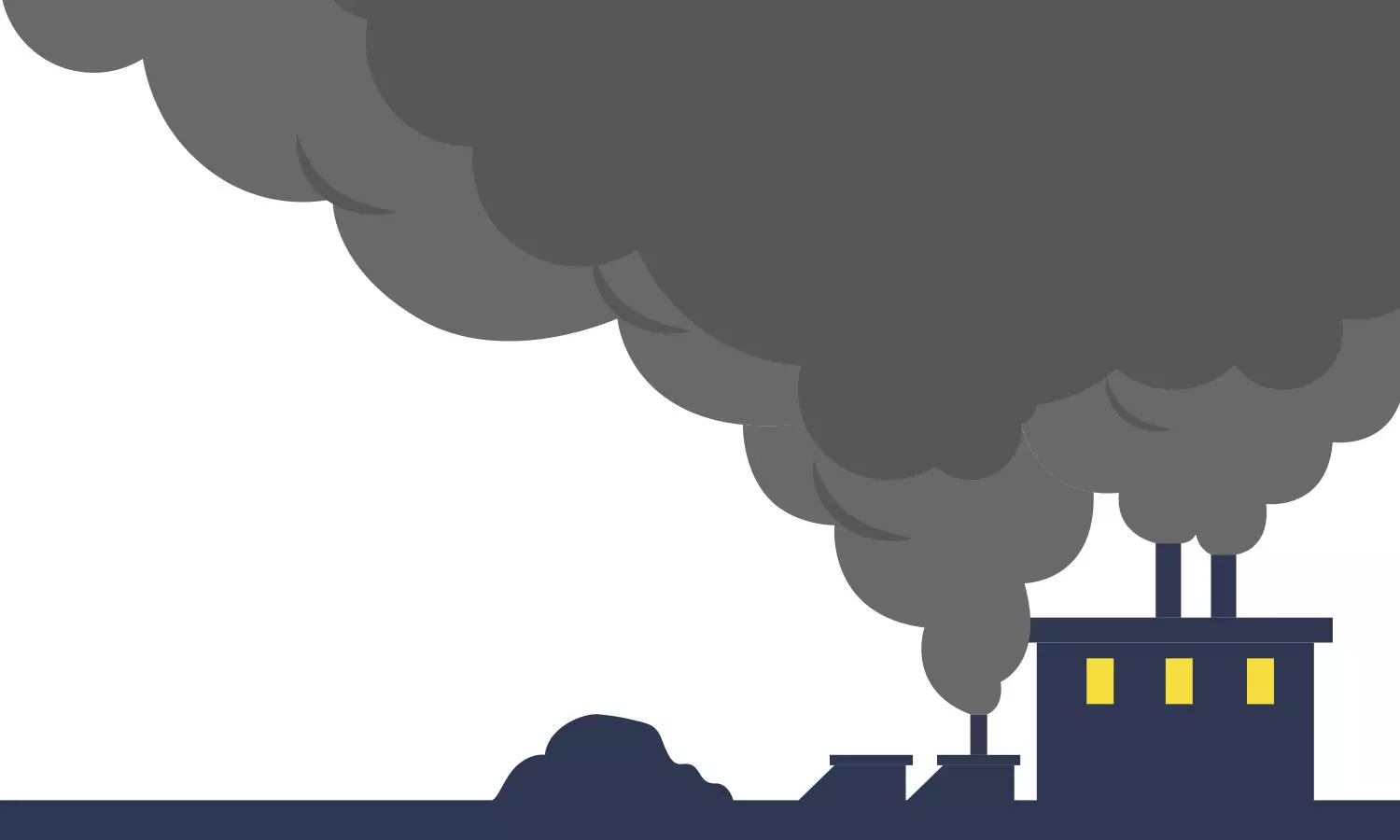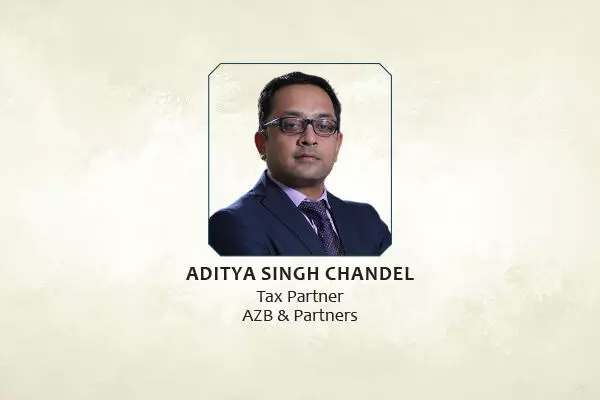- Home
- News
- Articles+
- Aerospace
- Artificial Intelligence
- Agriculture
- Alternate Dispute Resolution
- Arbitration & Mediation
- Banking and Finance
- Bankruptcy
- Book Review
- Bribery & Corruption
- Commercial Litigation
- Competition Law
- Conference Reports
- Consumer Products
- Contract
- Corporate Governance
- Corporate Law
- Covid-19
- Cryptocurrency
- Cybersecurity
- Data Protection
- Defence
- Digital Economy
- E-commerce
- Employment Law
- Energy and Natural Resources
- Entertainment and Sports Law
- Environmental Law
- Environmental, Social, and Governance
- Foreign Direct Investment
- Food and Beverage
- Gaming
- Health Care
- IBC Diaries
- In Focus
- Inclusion & Diversity
- Insurance Law
- Intellectual Property
- International Law
- IP & Tech Era
- Know the Law
- Labour Laws
- Law & Policy and Regulation
- Litigation
- Litigation Funding
- Manufacturing
- Mergers & Acquisitions
- NFTs
- Privacy
- Private Equity
- Project Finance
- Real Estate
- Risk and Compliance
- Student Corner
- Take On Board
- Tax
- Technology Media and Telecom
- Tributes
- Viewpoint
- Zoom In
- Law Firms
- In-House
- Rankings
- E-Magazine
- Legal Era TV
- Events
- Middle East
- Africa
- News
- Articles
- Aerospace
- Artificial Intelligence
- Agriculture
- Alternate Dispute Resolution
- Arbitration & Mediation
- Banking and Finance
- Bankruptcy
- Book Review
- Bribery & Corruption
- Commercial Litigation
- Competition Law
- Conference Reports
- Consumer Products
- Contract
- Corporate Governance
- Corporate Law
- Covid-19
- Cryptocurrency
- Cybersecurity
- Data Protection
- Defence
- Digital Economy
- E-commerce
- Employment Law
- Energy and Natural Resources
- Entertainment and Sports Law
- Environmental Law
- Environmental, Social, and Governance
- Foreign Direct Investment
- Food and Beverage
- Gaming
- Health Care
- IBC Diaries
- In Focus
- Inclusion & Diversity
- Insurance Law
- Intellectual Property
- International Law
- IP & Tech Era
- Know the Law
- Labour Laws
- Law & Policy and Regulation
- Litigation
- Litigation Funding
- Manufacturing
- Mergers & Acquisitions
- NFTs
- Privacy
- Private Equity
- Project Finance
- Real Estate
- Risk and Compliance
- Student Corner
- Take On Board
- Tax
- Technology Media and Telecom
- Tributes
- Viewpoint
- Zoom In
- Law Firms
- In-House
- Rankings
- E-Magazine
- Legal Era TV
- Events
- Middle East
- Africa

From Emissions to Exports: Indian Perspective on EU’s Carbon Border Adjustment Mechanism
From Emissions to Exports: Indian Perspective on EU’s Carbon Border Adjustment Mechanism

From Emissions to Exports: Indian Perspective on EU’s Carbon Border Adjustment Mechanism The EU ETS system aims to reduce carbon emissions by promoting the adoption of effective technologies and mechanisms for manufacturing goods or attaching costs to carbon emissions through emissions allowances. The European Union (EU) has responded to climate change and carbon emissions by introducing...
To Read the Full Story, Subscribe to Legal Era News
Access Exclusive Legal Era Stories, Editorial Insights, and Expert Opinion.
Already a subscriber? Sign in Now
From Emissions to Exports: Indian Perspective on EU’s Carbon Border Adjustment Mechanism
The EU ETS system aims to reduce carbon emissions by promoting the adoption of effective technologies and mechanisms for manufacturing goods or attaching costs to carbon emissions through emissions allowances.
The European Union (EU) has responded to climate change and carbon emissions by introducing the EU Emissions Trading System (EU ETS). The EU ETS is based on a ‘cap and trade’ system as per which a limit or a cap is set on the overall carbon emissions of operators engaged in specific sectors, and such a limit is further cut down to lower the carbon emissions. The operators must purchase or receive emissions allowances to emit carbons within the permissible limit/ overall cap. The emissions allowances are tradable and can be sold to other operators if the operators possessing them can reduce their carbon emissions. The EU ETS system aims to reduce carbon emissions by promoting the adoption of effective technologies and mechanisms for manufacturing goods or attaching costs to carbon emissions through emissions allowances.

Implementing the EU ETS system can drive entities covered under the said system out of the EU to manufacture carbon-intensive products in non-EU countries. It may result in the EU receiving carbon-intensive products imported from non-EU countries, thus resulting in “carbon leakage”. Carbon leakage refers to a situation where manufacturers of carbon-intensive products move from a jurisdiction with stringent restrictions on emissions to a jurisdiction with less strict regulations. Consequently, a carbon-intensive product, which may not be subject to restrictions similar to the EU ETS in non-EU jurisdictions, may replace products locally manufactured in the EU.
To deal with the situation of carbon leakage, the EU has developed the Carbon Border Adjustment Mechanism (CBAM). As part of this mechanism, importers of goods to the EU will be required to declare embedded carbon emissions concerning the production of the imported goods. Corresponding to such emissions, the said importers will be required to surrender CBAM certificates to which a price based on the average auction price of EU ETS allowances will be attached. Further, the price payable on carbon emissions will be subject to a deduction of any price already paid on such emissions in the country of production. In the first phase of the CBAM, sectors such as cement, iron and steel, aluminium, fertilisers, electricity and hydrogen are covered.
The CBAM has come into effect in its transitional phase from October 1, 2023. In the transitional phase, the importers are required to report the embedded carbon emissions from products imported into the EU during their manufacturing process in the country of export. This reporting requirement will be quarterly; the concerned importers must submit their first report by January 31, 2024. The permanent system will be applicable from January 1, 2026, after which the concerned importers must submit CBAM certificates corresponding to the carbon emissions.
Impact on India
The reports suggest that India’s exports to the EU, especially in base metals such as steel, aluminium and iron, will be affected. India is one of the biggest exporters of iron, steel and aluminium to the EU. In 2022, India exported iron, steel and aluminium products of value USD 8.2 billion (i.e., 27% of India’s total export of the said base metals) to the EU.1
As per a recent report, implementing the CBAM may reduce the profits of India’s steel exporters to the EU by USD 60-165/MT from 2026 to 2034. As a result, 15-40% of India’s yearly steel exports to the EU are likely to be affected.2 As per the report prepared by the economic think tank Global Trade Research Initiative (GTRI), the impact on the export of iron, steel and aluminium products is likely to be high. It is also expected that the export of iron, steel and aluminium will be subject to an additional 20-35% taxes on account of the CBAM.3
While, as per the EU, the CBAM is compliant with the World Trade Organisation (WTO) rules, India is considering challenging it before the WTO for creating trade barriers in the name of environmental protection and being non-compliant with WTO rules.
Another issue about the CBAM will be concerning reporting compliances, which the importers will be responsible for undertaking. Failure to undertake the required compliances will result in penalties for the importers. The importers will be required to submit detailed reports (including various data and explanations) on carbon emissions concerning an imported item,4 which would also include direct and indirect emissions involved therein.
Resultantly, it is expected that the concerned exporter will be required to submit thousands of data points, explanations and methods to the importers in the EU under the CBAM. It will require a proper understanding of the CBAM regulations containing complex processes.5 The compliance requirement under the CBAM is cumbersome, which may be challenging for Indian exporters, especially the smaller ones.
While, as per the EU, the CBAM is compliant with the World Trade Organisation (WTO) rules, India is considering challenging it before the WTO for creating trade barriers in the name of environmental protection and being non-compliant with WTO rules.6 One of the grounds on which CBAM can be challenged is the principle of common but differentiated responsibilities (CBDR), which states that owing to different levels of economic development, each nation has a common but different responsibility to address environmental protection issues.
One way of dealing with the impact of CBAM would be to introduce restrictions similar to the EU ETS in India. The Indian government has taken a step in this direction and proposed introducing the Carbon Credit Trading Scheme (CCTS) as part of India’s environmental laws, which will be similar to the EU ETS. CCTS would allow the Indian exporters to claim a deduction of prices paid on carbon emissions under the CBAM.
Further, as a way forward, the Indian government, as a first step, should sensitise the concerned exporters and create awareness among them regarding the various compliances which would need to be undertaken by them under the CBAM mechanism.7 Currently, there needs to be a standard procedure or mechanism to be followed for carbon emissions reporting in India. The government should formulate guidelines or policies for carbon reporting that identify the carbon emissions at each production level.
The concerned exporters will also be required to develop tools and frame standard policies to track carbon emissions and collect data on such emissions. Further, Indian manufacturers/ exporters should also consider adopting more efficient technologies and methods for producing goods, such as relying on renewable energy sources to reduce their overall carbon emissions. Implementing the CBAM may be a trade barrier for the concerned Indian exporters; however, its negative impact can be mitigated with well-designed strategies and approaches.
Disclaimer – The views expressed in this article are the personal views of the authors and are purely informative in nature.
2. Steep rally in carbon prices and CBAM compliance requirements could pull down the profits of Indian steel exports to the EU by US$60 -165/MT between CY2026 and CY2034, available at https://www.icraresearch.in/Research/ViewResearchReport/5100
3. Supra note 1.
4. Article 6, REGULATION (EU) 2023/956 OF THE EUROPEAN PARLIAMENT AND OF THE COUNCIL of May 10 2023, establishing a carbon border adjustment mechanism.
5. Global Trade Research Initiative, CBAM Countdown: Preparing Indian Exporters for the Transition Period, available at http://gtri.co.in/gtriFlagshipReports.asp
6. India seeks Taiwan, S. Africa backing on the carbon border tax, available at https://www.livemint.com/economy/india-seeks-taiwan-s-africa-backing-on-carbon-bordertax-11686936697768.html
7. Supra note 5.


